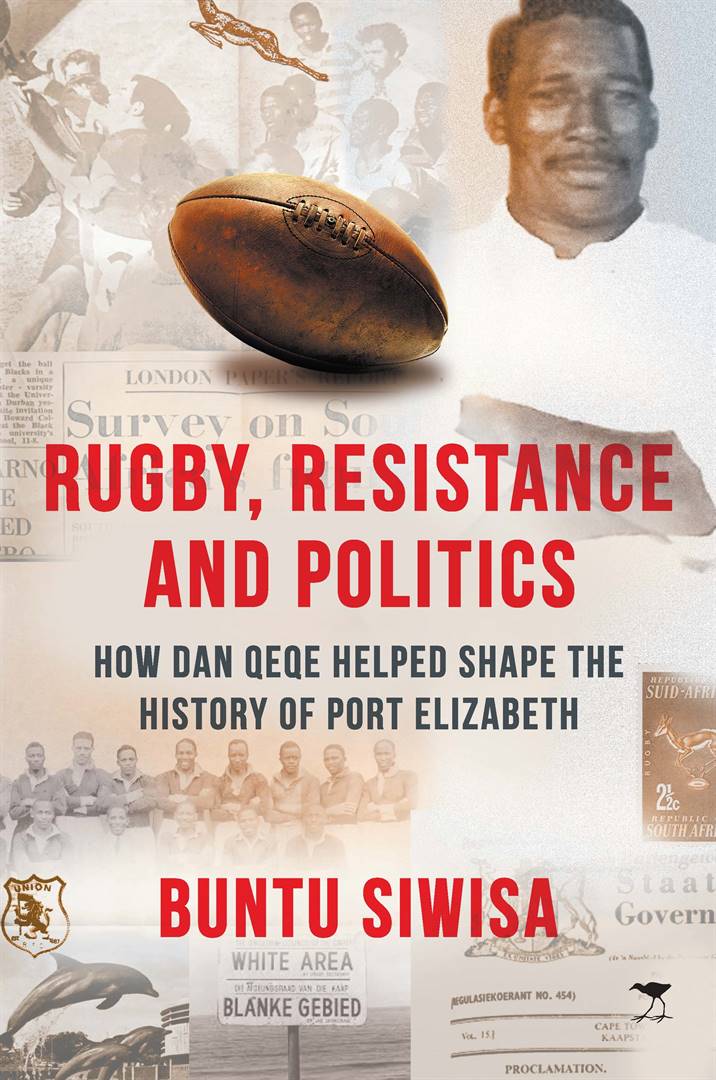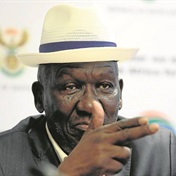
For the first time in the history of Port Elizabeth’s black communities, a rugby union became a political and cultural sensation all rolled into a commanding playing force.
It was no coincidence that the KwaZakhele Rugby Union (Kwaru) embodied the spirit of black consciousness at such a time, in a Port Elizabeth historically and highly responsive to anti-apartheid political mobilisation.
Judge Cecil “Doc” Somyalo reflected on how it was no coincidence either that Kwaru soon appropriated black pride. This was the political mood of the time in which Kwaru came into being. He argued that Kwaru filled the void, following the banning of the ANC and the Pan African Congress of Azania.
And it particularly filled that space at a time that was ideologically dominated by black consciousness and the activities of the Black Consciousness Movement.
READ: Book Review | A mediation on loss, a celebration of life
Kwaru’s message of non-racial sports liberation spread far and wide fast. Judge Lex Mpati, then a Grahamstown-based rugby player in the fold of the South Eastern Districts Rugby Union, and later an SA Rugby Union administrator, remembered a Kwaru that was fast attracting attention when he visited Langa township in Cape Town in 1971.
It was a sensation that soon assumed a political tone, and attracted the attendant clampdown:
And Kwaru got publicised, as it were, because there was commentary on their games. I don’t know, it stopped later because the powers that be must have realised that, “hey, here’s something happening. We don’t agree with this team that’s playing in the non-racial fold, and being publicised and getting time on air.” And the commentary on Kwaru stopped.
READ: Book Extract | Bheki Cele: the cat in the hat
In just a few years, Kwaru had quickly metamorphosed into “The Mighty Kwaru” … beating every team they played against. They won the SA Cup in 1975, 1976 and 1979. And central in moulding Kwaru’s playing prowess was Dan Qeqe and his doggedly Herculean training regimen. His was a highly unpopular routine, with its own peculiar balance between physical fitness, ball and rugby playing skills.
Nonetheless, it was Qeqe’s trademark training style that turned the Kwaru team into a sensation. Animatedly recalling a match
between Kwaru and the Blues, the University of Fort Hare Rugby Football Club team, hosted in Alice in the mid-1970s, [Mthobi] Tyamzashe painted the following scene of Kwaru’s showmanship: “I was at Fort Hare, and the Blues, their rugby team, wanted a match with Kwaru. I remember we played the curtain-raisers in Alice, at the Davidson Stadium. It was an evening game.
“I’m talking about Themba Ludwaba. I’m talking about … yho! I just say, these guys! I mean, I never knew rugby and forward play until I was associated with that thinking. They had this thing called ‘the rolling maul’.
“When it’s a few yards from the scoring line, chances are that they are going to score, because they move like this thing [gesticulating a wave with hands]. It’s called the ‘rolling maul’ … They’re just rolling … What I’m trying to say is, I started to say, we can beat white guys with this kind of rugby that they’re playing.” Ngconde Balfour reminisced with similar energy about that match: “Kwaru and Fort Hare. Bro’ Stof [Makhenkesi Stofile] was running here on the line. Bro’ Stof was a bulky person. He ran on the line when we were leading Kwaru.”
READ: Book Extract | What Ramaphosa can do with the "poisoned chalice"
And after the match, Balfour recalled how Qeqe, using his old tried and tested pilfering ways of recruiting players from outside Port Elizabeth, failed against Stofile’s determination: “After the match, we met with Oom Dan. Oom Dan tried his best to get some of us to go to Port Elizabeth. And Bro’ Stof said, when I told him that Oom Dan said, ‘Ngconde, can I see you?’”
Bro’ Stof said:
Although not on the Kwaru executive committee, Qeqe shaped the union’s rugby-playing character. Many remembered his punishing training methods, often placing a premium on physical fitness over “fancy” rugby skills taught by then coach Muhammad Agherdien. Arghedien had a preoccupation with “skills, ball control, this rugby that New Zealand plays – keep the ball; four men, four hands; you know, how to bump into another player, turn and give a ball out, do you understand?”
READ: Book Extract | Will there be accountability?
A stickler when it came to his belief that “99% fitness, and other things, such as skills, are in that 1%”, Mpumelelo “Sbhidla” Majola recalled Qeqe’s gruelling training methods: Baas Dan, his thing was one:
And then you are going to run and run and run. When he sees that you are about to get exhausted, frog jump then was standard, it was his favourite. One, two, one, two. You would frog jump then.
*Rugby, Resistance and Politics: How Dan Qeqe Helped Shape the History of Port Elizabeth is published by Jacana Media




 Publications
Publications
 Partners
Partners









